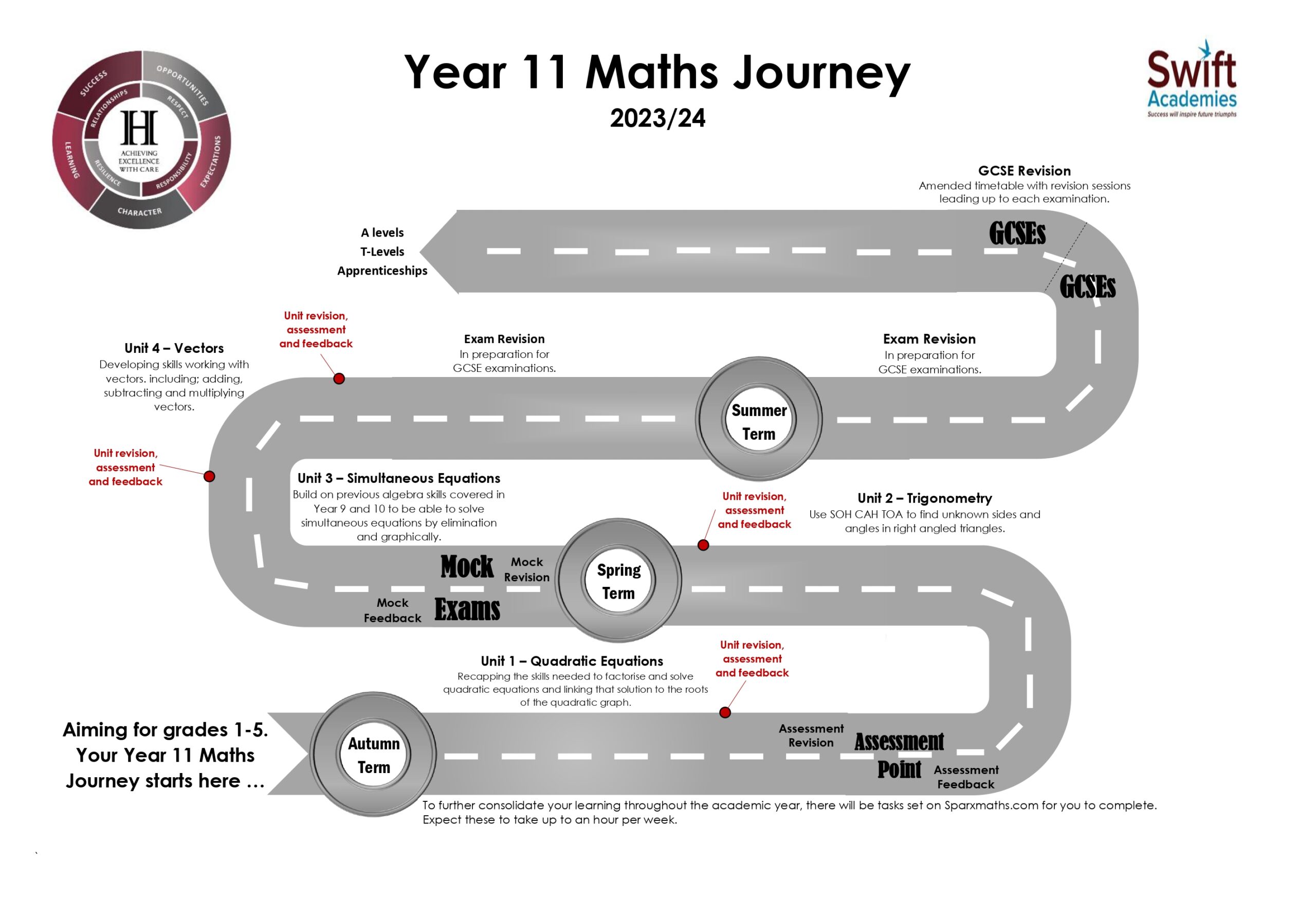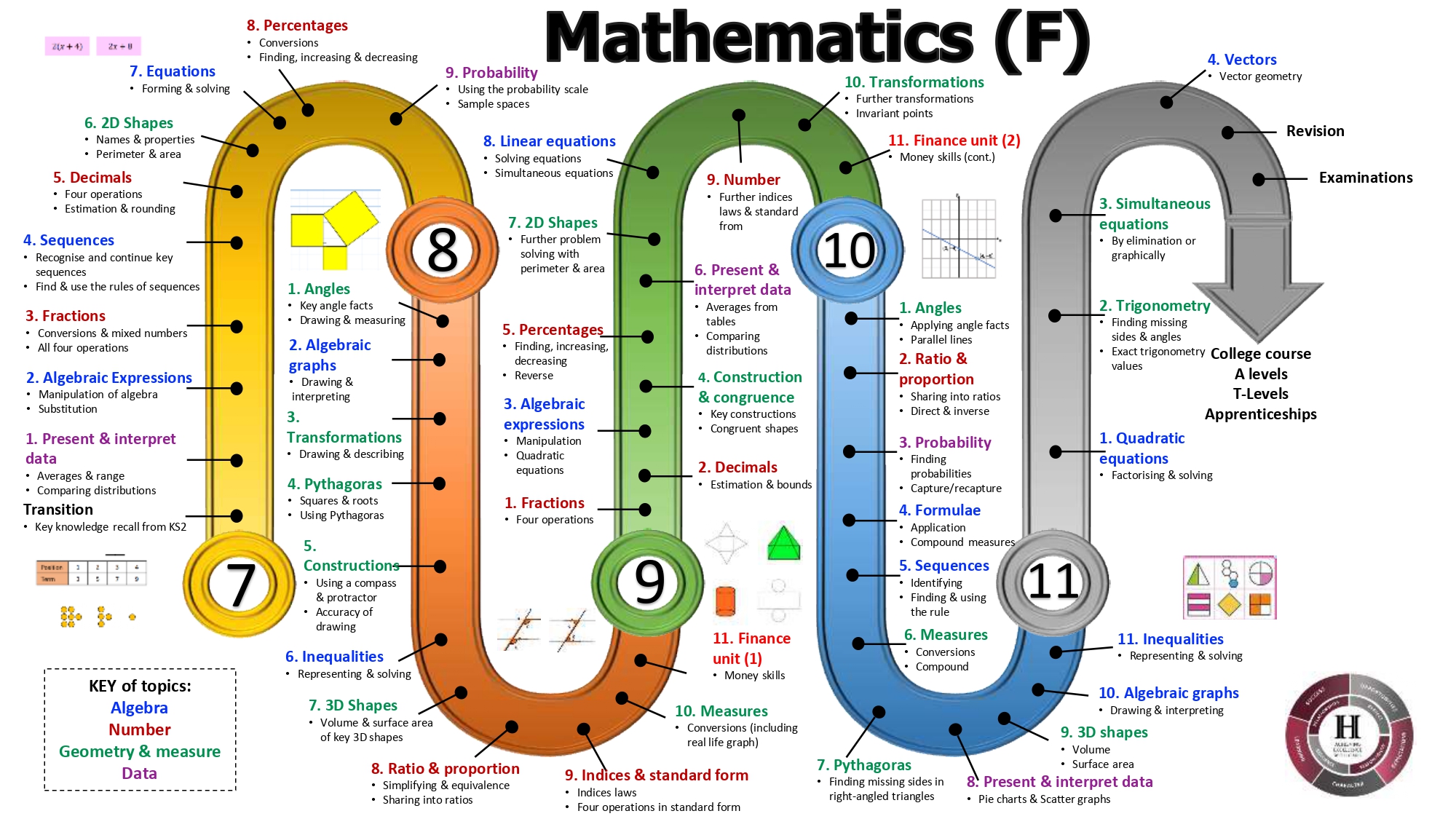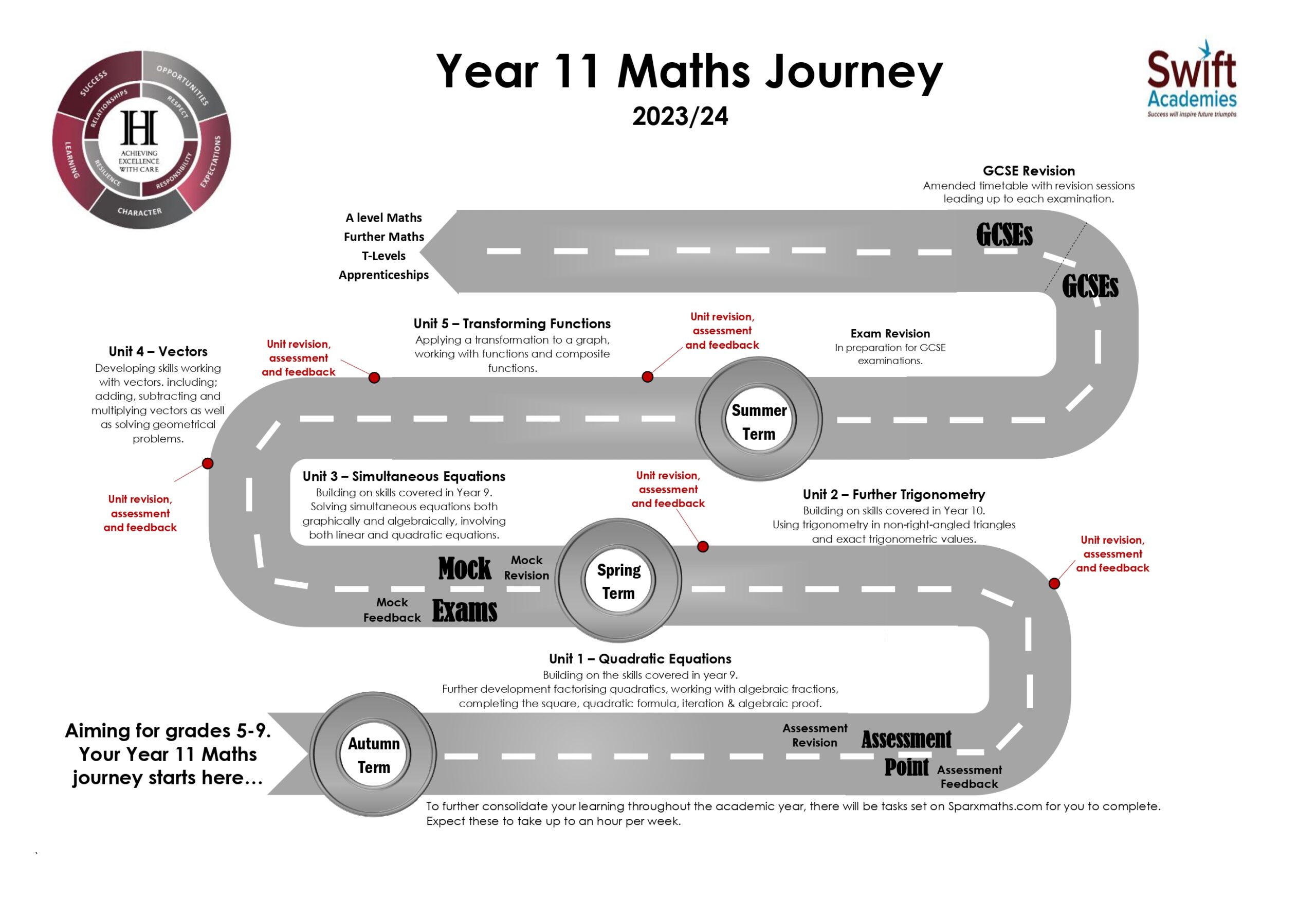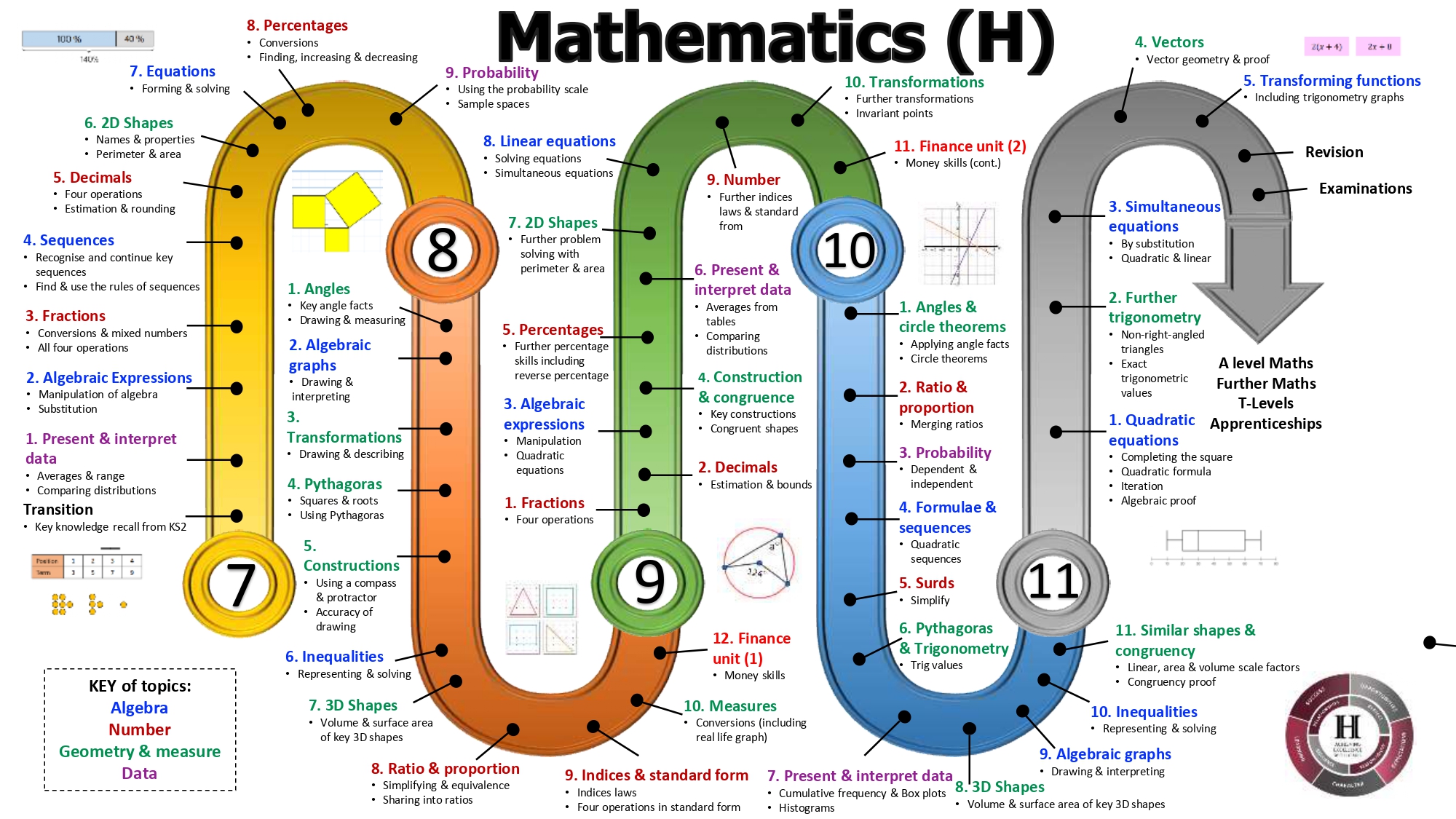Mathematics
Why do we study Mathematics?
Mathematics is a creative and highly inter-connected discipline. It is not only essential to many areas of everyday life, it is also integral to many other subjects, such as; science, technology, engineering and business. Mathematics is also a vital skill for financial literacy and plays an important part in many employment roles. Therefore, a high-quality Mathematics education is essential for all.
We aim to provide a programme of study that; builds confidence in mathematical process and understanding; enables mathematical reasoning; ignites a curiosity to want to go on to explore Mathematics to a higher level and to use it boldly in future careers.
While the programme of study is presented as distinct units, they very much inter-link and relate to one-another at many levels. Students are shown how to identify those relationships and how to work seamlessly between topics. This is achieved by using regular multi-step problem solving questions that may present as one specific topic yet proceed into needing disciplines from other units along the way.
At Key Stage 3, students build upon key concepts that they have already experienced in Key Stage 2, with a couple of ‘new’ concepts added to their repertoire. Key Stage 4 will take this one step further, preparing them not only for the demands of the GCSE examinations, but also for everyday life.
Calculator
Students are required to have a scientific calculator for their Maths lesson. This calculator or a similar model are the ones that we recommend. They are on sale in school for £10.

Year 7
Learning Outcomes
Students build upon their knowledge of mathematics from their Key Stage 2 studies by facing ever more complex problems and learning the strategies needed to solve them.
Year 7 will begin with a transition task which is used to determine how fluent pupils are with the key skills they have already acquired.
Building upon core methods, the development of fluency, reasoning and problem solving is structured into every topic area; students will have the opportunity to solve problems in the majority of lessons.
The demand on clear written methods and good number skills stay from primary school but there is an ever increasing use of calculators to help solve problems and greater introduction of algebra throughout the year into all topics.
We recognise that not all students are ready for secondary level work. Our differentiated curriculum allows students to bridge the gap between KS2 and KS3.
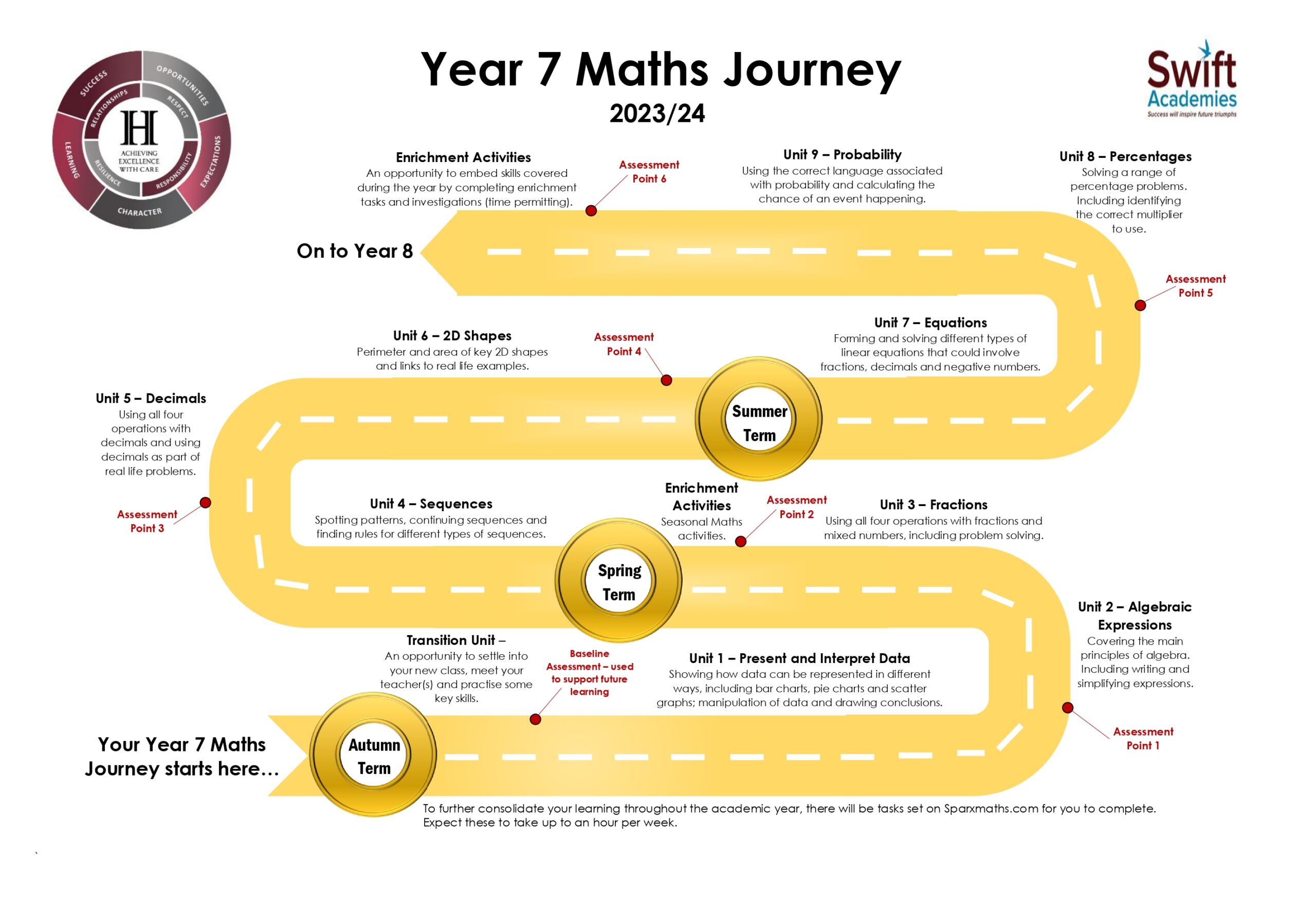
Maths Read and Watch List
Year 8
Learning Outcomes
Students continue to build upon their knowledge of all areas of Mathematics from their work in Year 7 by facing more demanding strategies to solve problems in the topics stated below.
Building upon core methods, the development of fluency, reasoning and problem solving is again structured into every topic area.
Clear written methods and good number skills are expected in every topic and students are expected to be able to link different areas of the subject to help solve problems with algebra now embedded throughout all topics.
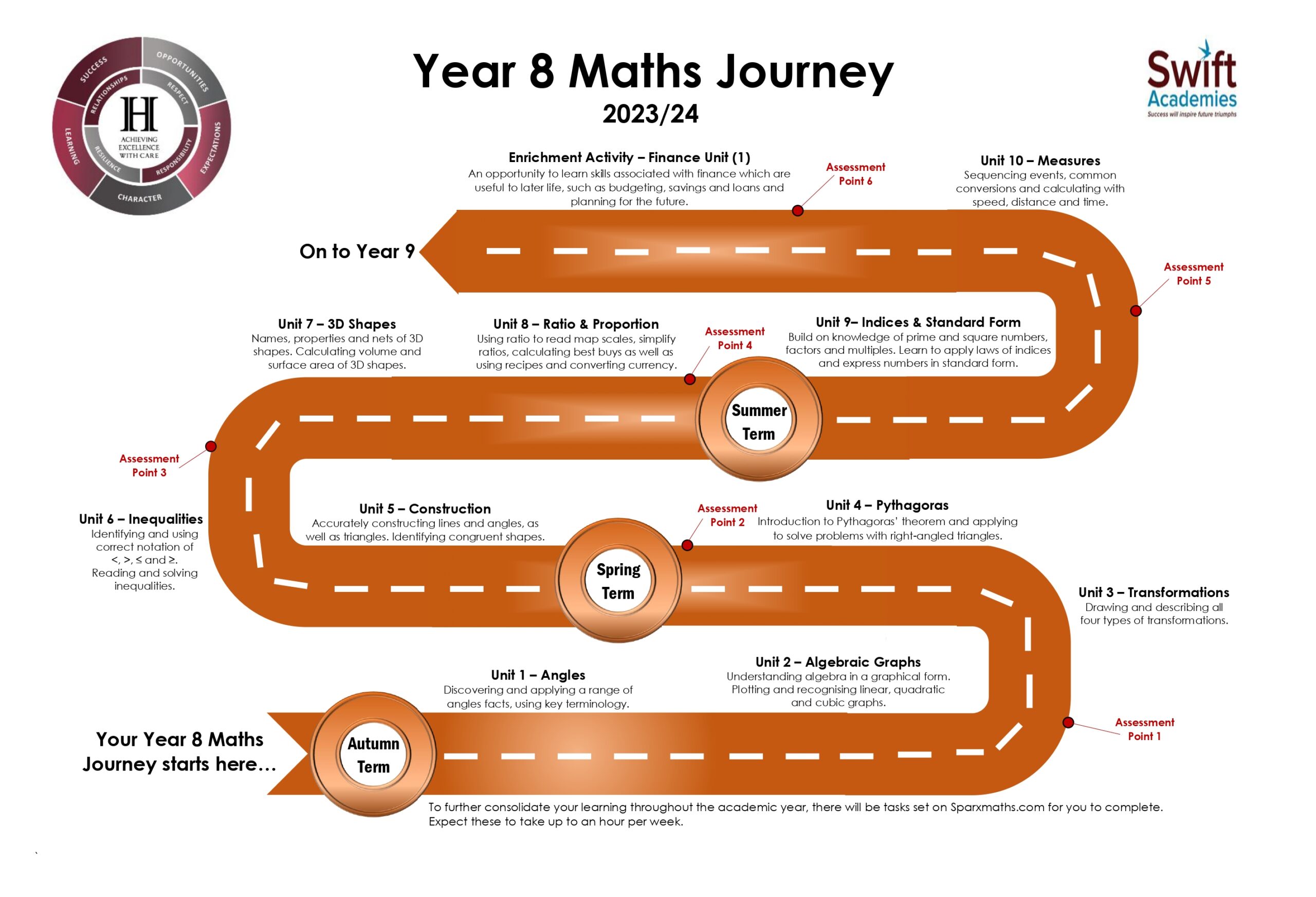
Maths Read and Watch List
Year 9
Learning Outcomes
Students continue to build upon their knowledge of all areas of mathematics from their work in Year 8 by facing more demanding strategies to solve problems in all topic areas.
Building upon core methods, the development of fluency, reasoning and problem solving is again structured into every topic area and all topics are assessed by GCSE style questions.
Clear written methods and good number skills are expected in every topic and students are expected to be able to link different areas of the subject to help solve problems with algebra now embedded throughout all topics with both familiar and unfamiliar contexts.
During the year students will have experience of meeting more challenging exam style work in anticipation of heading towards their examinations.
The end of the year gives students the opportunity to transfer their skills and knowledge to real-life financial scenarios, which will help to equip them for life after school (e.g. savings, loans, taxation and budgeting).
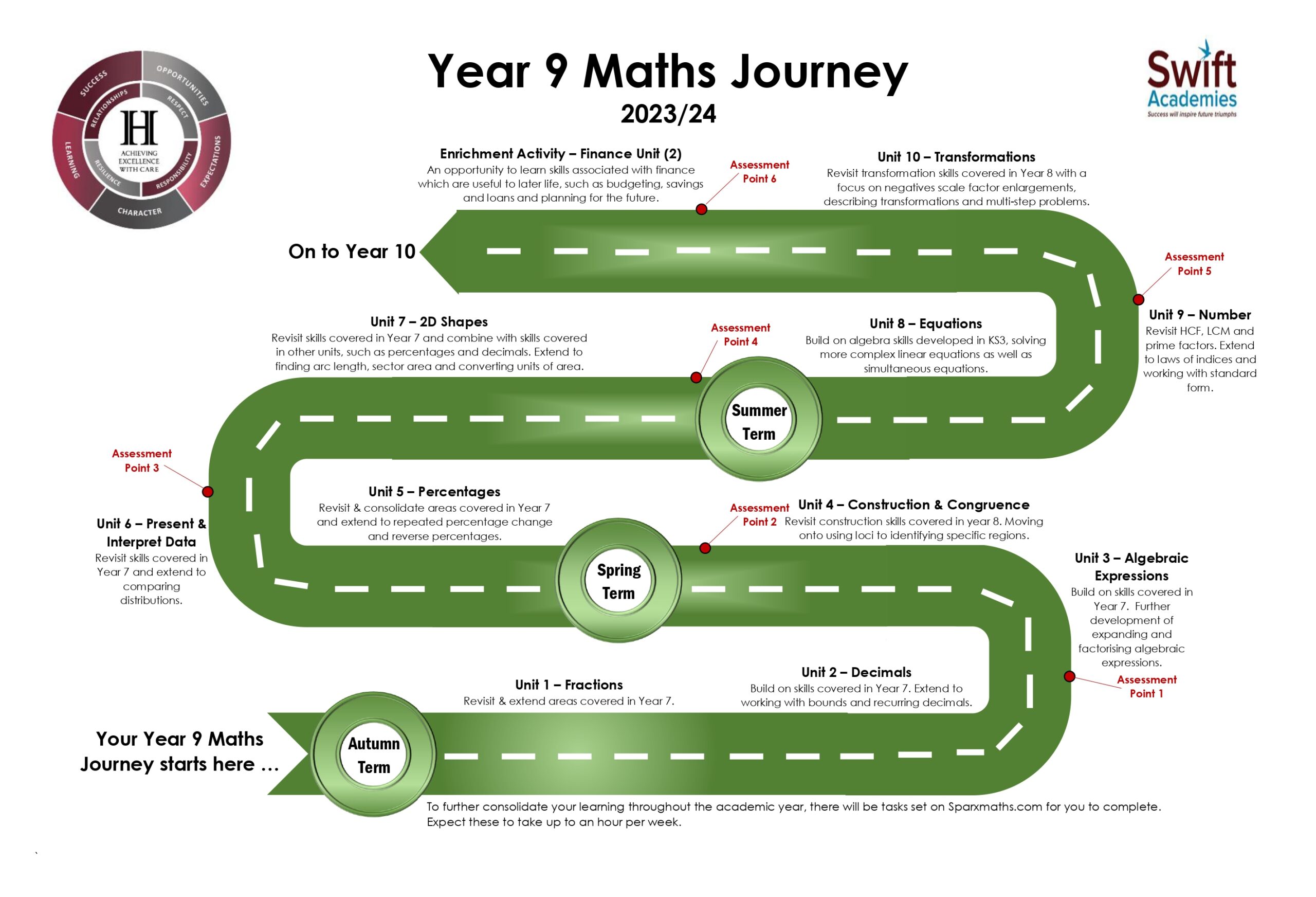
Maths Read and Watch List
Year 10
Exam Specification
GCSE Mathematics
Edexcel Specification 1MA1
Learning Outcomes
Students continue their studies through the GCSE curriculum and build upon the knowledge and skills developed to date.
Building upon core methods, the development of fluency, reasoning and problem solving is again structured into every topic area and all topics are again assessed by GCSE style questions.
Clear written methods and good number skills are expected in every topic and students are expected to be able to link different areas of the subject to help solve problems with algebra now embedded throughout all topics with both familiar and unfamiliar contexts.
Students will work towards either the Foundation or Higher tier; the decision will be based upon the performance over the last three years, which could change depending upon the level of progress being made.
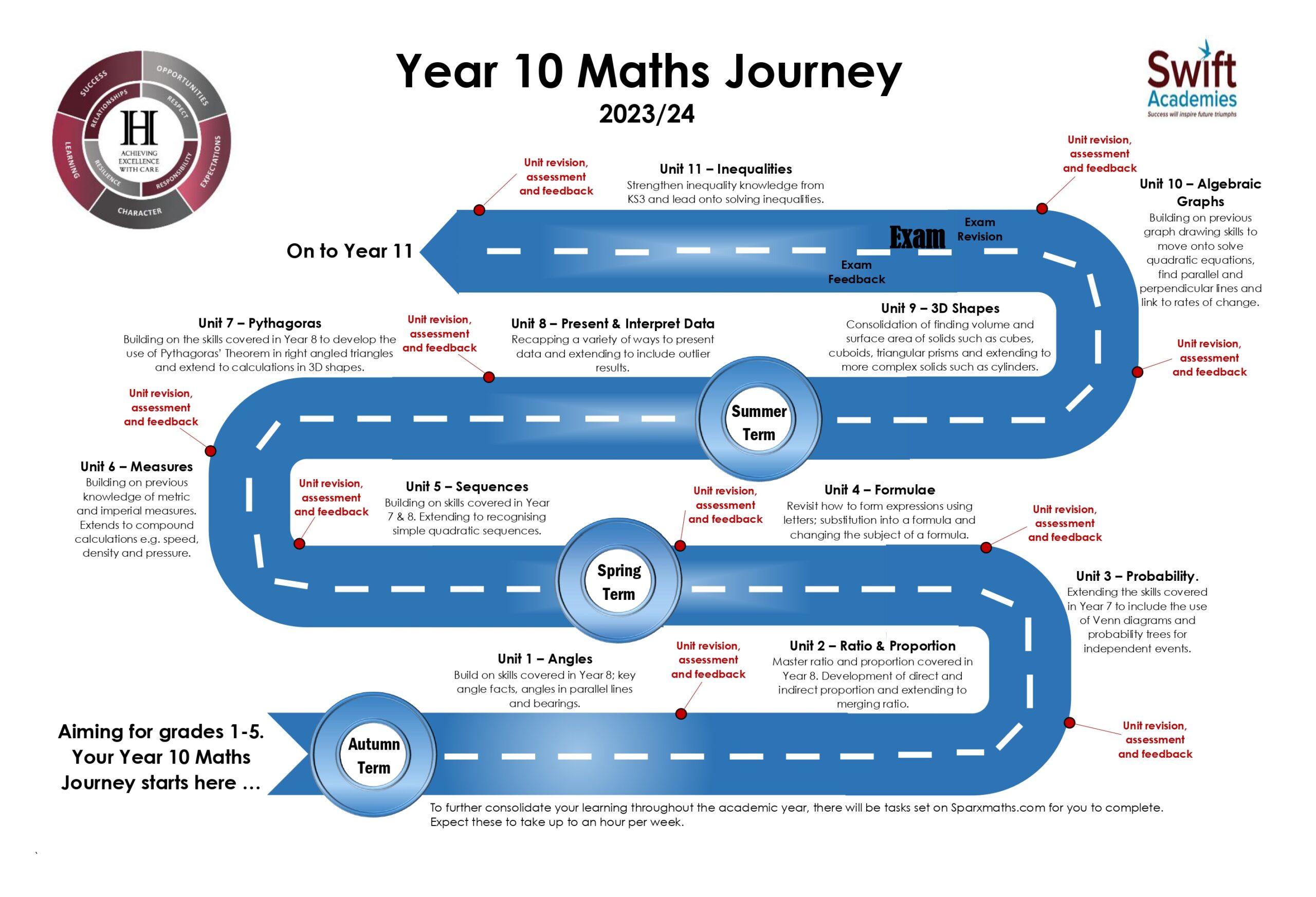
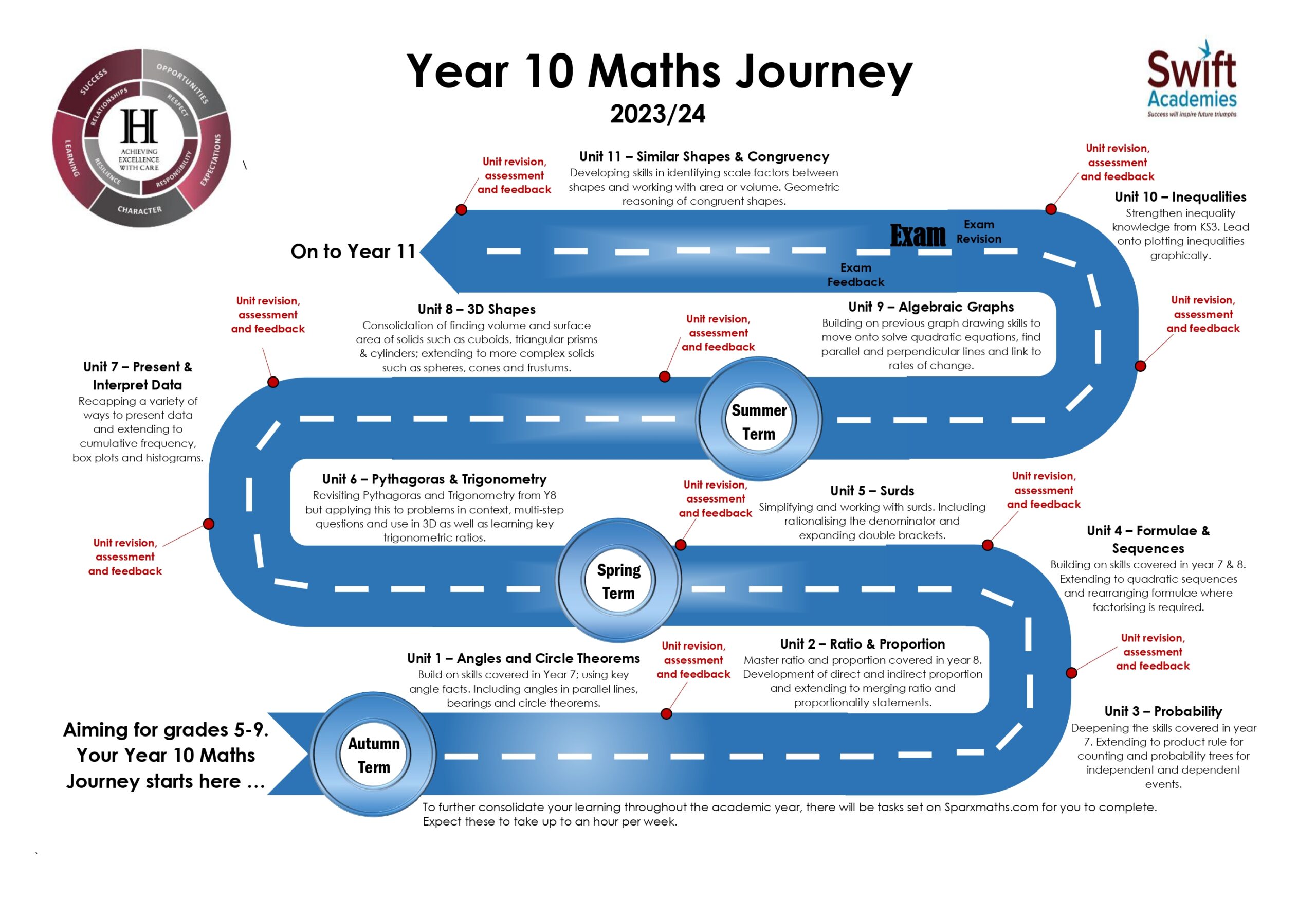
Maths Read and Watch List
Year 11
Exam Specification
GCSE Mathematics
Edexcel Specification 1MA1
Learning Outcomes
Students continue their studies of the GCSE curriculum and build upon the knowledge and skills studied across all years to date.
Building upon core methods, the development of fluency, reasoning and problem solving is again structured into every topic area and all topics are again assessed by GCSE style questions.
Past exam papers are utilised to identify students’ strengths and areas for development; this is used to tailor their future revision lessons.
Students will see more and more how the different topics are inter-linked and develop the skills needed to move seamlessly between the topics within a larger problem solving scenario.
